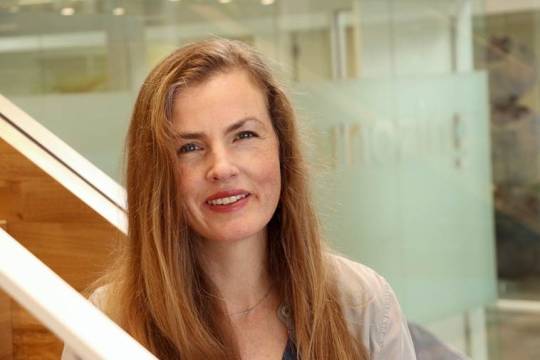On May 2nd we are hosting a member event in San Francisco with a fascinating panel discussion about what happens to mothers in the workforce from various points of view: psychologically, financially, professionally. All of the panelists have expertise in these areas and come armed with research, statistics and actionable tools that can be employed to help advance the careers of working parents and break down the isolation and inequity of the motherhood penalty.
We want to highlight the women taking part in this panel and their incredible work starting with Amy Henderson, the CEO and co-founder of tendlab. Amy was instrumental in organizing this event and is a thought-leader in the conversation about the benefit of working mothers on the workforce. She brings neuroscience, game theory, management studies, evolutionary biology and interviews with hundreds of executives together to support her research on the positive impact of parents on the companies who employ them.

You created Tend Lab to teach businesses how and why to support their working parents. What are some of your wins?
We’ve had great success in working with companies who invest in the development (or expansion) of parent groups. When parents can meet to learn from each other and advocate for their needs within the company, it empowers everyone, even non-parents, to perform at a higher level. We’ve found that when non-parent allies participate in these gatherings it builds a bridge of communication and understanding that positively impacts the way teams engage with each other.
What do you think are the persistent stigma that won’t go away?
There are three pervasive myths that undermine all parents, both in their careers and at home. tendlab research debunks all of them.
1. Mothers are better than fathers at caring for their children, especially when they are young.
Neuroscience research shows that men’s brains’ are sensitive to childcare experiences. In other words, when dads show up for parenting, especially in the first year of their child’s life, they alter their brains in ways that allow them to forge the same deep bonds mothers experience with their infants. Dads can be as instinctually responsive to the needs of their newborns as moms.
2. Becoming a mother undermines a woman’s ability to perform in her career. She will be less ambitious, more distracted, and will lose her professional edge.
Our research shows that, in the long run, having a child can enhance a woman’s ambition, focus, and professional capacity. The women who thrive as working mothers are those who prioritize finding support for themselves and their families. Building or joining a community of other working moms who can help us normalize and de-stigmatize the alienation and shame so many of us experience, and who can also help us recognize the ways we are being positively transformed by motherhood, is particularly powerful
3. Prioritizing good relationships with our kids will have negative repercussions on our careers.
We’ve found that showing up for Motherhood allows women to develop skills that are not only relevant, but necessary, for success in the rapidly evolving workplace. Carving out time to be with her children, even if it seems to be at odds with her career success, can allow a woman to evolve into a more potent version of her former professional self.
Do you think there is a gap between what companies promote about their cultures and what they actually do?
Absolutely. Many companies advertise themselves as parent-friendly. And while many of them may even have great perks and policies (like extended parental leave, etc.), if the managers and leadership do not recognize the value of their parent employees, it will be a difficult place for a working mom to work.
Thank you Amy! If your company is interested in working with tendlab to create a positive and supportive environment for working parents, or if you are a working mom interested in learning more about Tend Lab’s community building workshops for career mothers, you can reach Amy by email –amy@tendlab.com